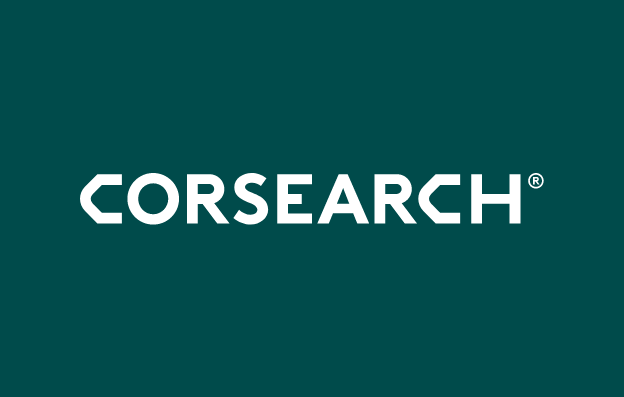Blog
The Digital Services Act: What do Brand and Content Owners need?
- Brand Protection
- Content Protection

Across the internet from marketplaces to social media platforms and from cyberlockers to app stores, the proliferation of counterfeit goods; non-compliant, illegal and potentially dangerous products; and infringing content continues at an alarming rate. All stakeholders and economies are at risk.
According to Corsearch, a small number of sellers of illicit products (6%) are responsible for a disproportionately large proportion of illicit sales (24%). The OECD has estimated that the extent of counterfeit goods in global trade had reached $509 billion by 2019.
In the EU, the aim of the proposed Digital Services Act (DSA), released by the European Commission in December 2020, is to address the proliferation of illegal goods, products and services online while protecting the fundamental rights of all stakeholders. The goal is to create a safer internet, establish meaningful transparency and ensure online accountability with a view toward establishing an environment which fosters innovation, trust and economic growth.
Brand and content owners have welcomed the European Commission’s proposal but have pointed out some serious gaps which are detrimental to all stakeholders and that must be addressed by the EU co-legislator. To build trust in the online environment and to ensure a robust DSA which will stand the test of time, many brand and content owners are calling for modifications to ensure that the Commission’s proposal achieves the following:
- 1. Protection of existing protections: the DSA should leave intact and not affect the legi speciali listed in Article 1(5).
- 2. Respect for E-Commerce Directive principles elaborated by the European Court of Justice (Article 5): A hosting provider, which optimizes or promotes content (automatically or not) beyond offering basic search and indexing functionalities necessary to navigate that content, must not qualify for hosting privilege (exemption). Such services are not neutral. This point also relates to the ban on the imposition of general monitoring obligations. The Court of Justice has confirmed that providers can be required to undertake proactive measures to identify and remove illegal content or prevent its reappearance. The DSA Explanatory Memorandum provides explicit reference to the Facebook case (C-18/18) but this language should be inserted in Recital 28 of the DSA itself.
- 3. Clarity as to bad actors: the DSA must provide in a substantive provision (Article 5a) rather than just a recital that intermediaries which “engage in, facilitate or induce illegal activities” do not qualify for liability privileges.
- 4. Threshold Conditions for the Liability Privileges: Eligibility for the limitations on liability in the DSA must be conditional on compliance with its Due Diligence obligations. Intermediaries that fail to comply with these obligations should not benefit from the liability privileges in the DSA.
- 5. Online Accountability for Importers: Where sellers are based outside the EU, there must be an economic operator based in the EU who can be held accountable for ensuring compliance with applicable norms (e.g., product safety). Online intermediaries who enable end-users to conclude distance contracts with traders which do not have an establishment in the EU must be excluded from any exoneration from liability including in particular consumer protection and product safety law. They should be assimilated to the role of importer under EU law.
- 6. Consumer Protection: Article 5(3) which would disapply the hosting privilege for online marketplaces that present an item or enable a transaction “in a way that would lead an average and reasonably well-informed consumer to believe that the marketplace is providing it itself” should apply to all hosting services –if users believe the information is provided by the hosting service itself, then the privilege should not apply. Such an approach is consistent with the concept of neutrality.
- 7. Comprehensive Due Diligence coverage: the due diligence obligations in Sections 2-3 of Chapter III should extend to all hosting services, including micro or small enterprises. In particular, the obligation to verify the identity of business customers (KYBC) should extend to all online intermediaries.
- 8. Bad Samaritans – Article 6 (inspired by US law) would provide that intermediaries are not disqualified from the liability privileges in Articles 3, 4 and 5 solely because they carry out voluntary own-initiative investigations or other activities aimed at detecting, identifying and removing, or disabling of access to, illegal content or to comply with the law. This principle is already well-established in the EU. In order to ensure bad samaritans do not benefit from liability privileges, Article 6 must be clarified by stipulating that it concerns activities solely taken to detect, identify and take action against illegal content. Moreover, Article 6 must not operate in a manner that prevents the imputation of actual knowledge in order to ensure expeditious removal of or disabling of access to the illegal content.
- 9. Cross-Border Orders: Articles 8 and 9 are intended to harmonize certain procedural aspects of orders to act against a specific item of illegal content and orders to provide a specific item of information respectively based on current EU or national law. These provisions do not create a substantive new cause of action. While the context is clearly cross-border situations, these provisions are drafted in board terms. To ensure that important remedies under national law are not undermined, Articles 8 and 9 should be explicitly limited to cross-border orders. Article 9 should also clarify that the scope of available information extends to email addresses, telephone numbers, IP addresses and other necessary contact details in order to ensure meaningful compliance with EU and national law.
- 10. Notice and Action Mechanisms that work: The proposal creates burdensome hurdles to effective action and is missing some important elements. To improve the efficiency of notice sending with a view toward achieving effective and swift removal of illegal content and ongoing protection of users, it requires modification to ensure the following:
- A clear obligation to act by removing or disabling access to the notified information expeditiously
- A clear obligation to prevent the reappearance of notified illegal information
- Reasonable requirements for what should constitute a sufficiently precise and adequately substantiated notice. The “exact URL” requirement is unworkable, particularly with regard to apps and other services. The standard should be that the notice must include sufficient information to permit action.
- 11. Trusted Flaggers: Trusted Flagger rules should apply to all hosting services and trusted flagger status should be available to all entities which demonstrate expertise and a high rate of accuracy when flagging content regardless of whether or not they are part of trade associations or collective bodies.
- 12. Repeat Infringers: Article 20 mandates an important provision for ensuring online safety and tackling illegal content by introducing a repeat infringer mechanism. However, this scope of this provision is too narrow; it should be moved to Chapter II to ensure that it applies to all hosting services (e.g. cyberlockers). Moreover, Article 20 should also permit the termination of the provision of services in egregious cases – for example in cases of repeated suspension. Intermediaries should also take steps to limit abusive practices by establishing mechanisms to prevent re-registration by suspended or terminated individuals that frequently provide manifestly illegal content. Learn more about mechanisms that platforms could introduce to tackle repeat infringers in our white paper.
- 13. Effective enforcement powers: Digital Services Coordinators should have broad and effective powers to enforce the DSA.
A vote is scheduled in the European Parliament for December, but this is almost certainly going to slip to 2022.
Download “Three Strikes and Out”
How e-commerce platforms can protect consumers from repeat offenders
Our white paper provides brands, e-commerce platforms and legislators with data on the proportion of repeat infringements undertaken by the same sellers, who use key global online marketplaces and social media platforms to infringe intellectual property.
Learn how platforms can protect brands and consumers can by implementing strong seller verification and a ‘three-strikes-and-out’ policy.





